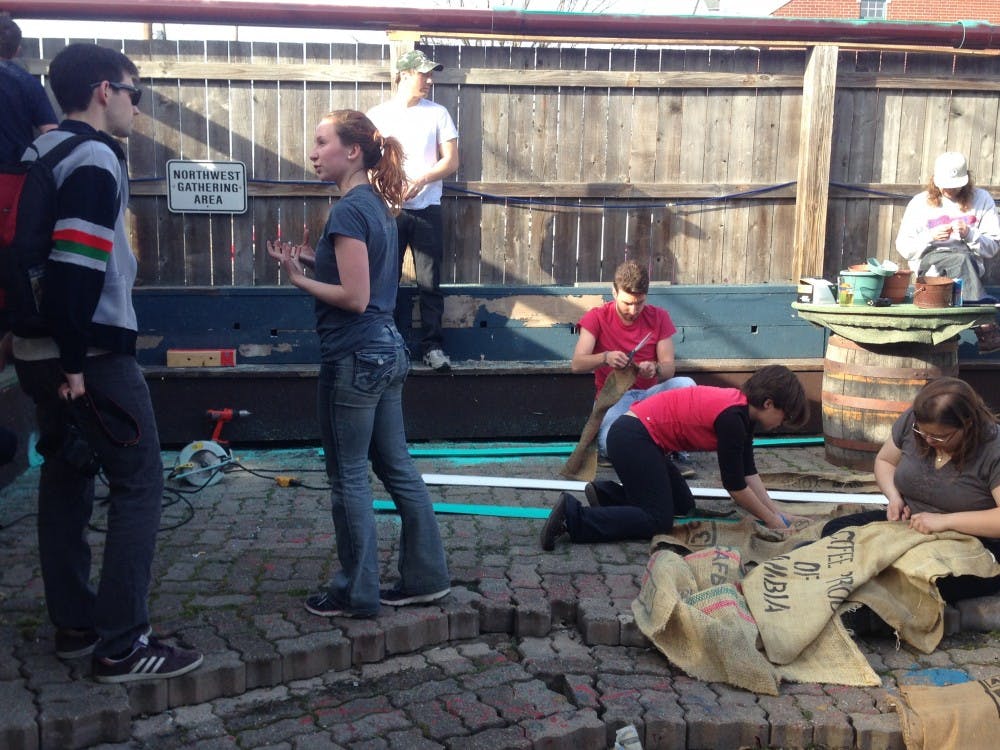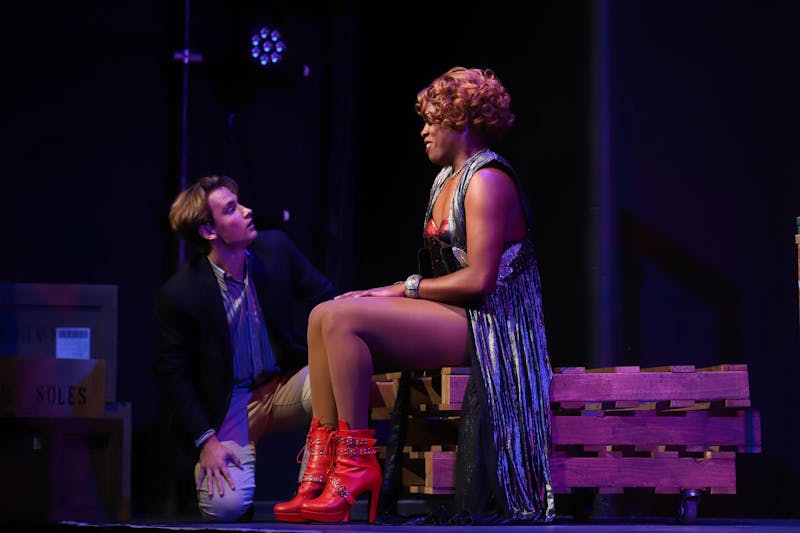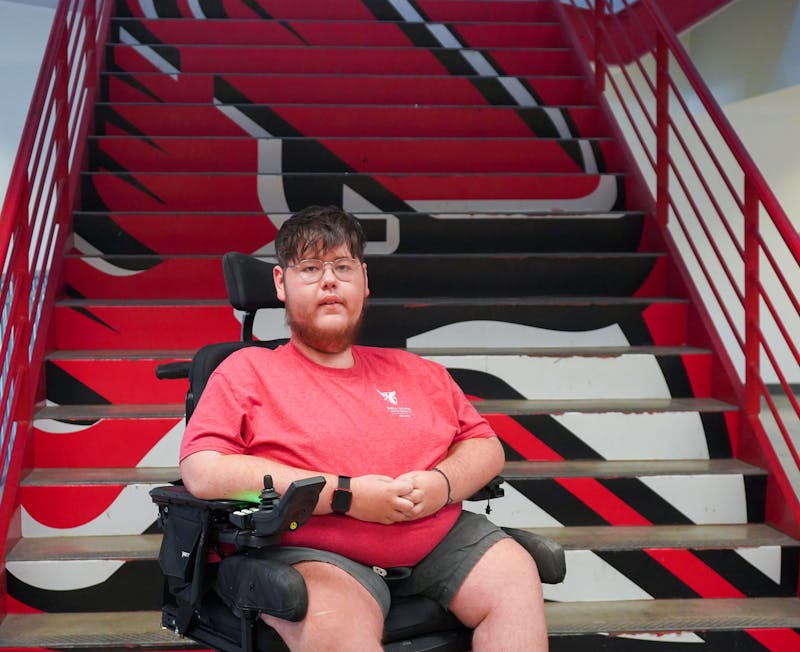When Faye Lichtsinn, a junior natural resources and environmental management major, hung out with her friend Gordon two summers ago, he told her about permaculture, the development of agricultural ecosystems intended to be sustainable and self-sufficient.
At the time, Lichtsinn had no clue that this new idea would inspire her to create a community initiative in Muncie, or receive an “Outstanding Community Service” award from the Natural Resources and Environmental Management Department at Ball State.
During Lichtsinn’s sophomore year, she got involved with Go Fossil Free, an activist group on Ball State's campus informing the public about the need of going fossil free. Shortly after, in October 2013, Lichtsinn attended a Powershift conference in Pittsburgh, Pa., where she was inspired to make a difference in the Muncie community by pushing efforts for sustainable food production.
“I was really excited because I got to talk about food security and all about permaculture the whole time,” Lichtsinn said.
When Lichtsinn returned to Muncie, she was curious to learn more about permaculture so she spent time researching and talking to other people on the topic. Once she learned that a permaculture initiative could benefit Muncie, she was determined to recruit Ball State students and community members to kickoff the project.
“[Permaculture] seems like a design system that we don’t really use, and more than just an agriculture system with taking care of food,” Lichtsinn said. “We don’t really pay attention to things in the long run.”
In addition to inspiration from Powershift, Lichtsinn was inspired freshman year by a professor at Ball State. Jarmila Popovicova, associate professor of natural resources and environmental management, led a group of students–including Lichtinn–on a study abroad trip to Costa Rica. The trip was a part of the sustainable community class on campus.
Lichtsinn said Popovicova has provided her with “green” job resources throughout her academic career and even recommended graduate school.
“I would totally replicate her career,” Lichtsinn said.
Today, the Permaculture Initiative is a collective of Ball State students and faculty, and community members of Muncie and surrounding areas.
“Starting [the initiative] I think was pretty easy,” Lichtsinn said. “There was a lot of positive feedback and everyone continued making the meetings–and it kind of helped that I brought cookies to the meetings.”
The group’s goals are to connect Ball State and local communities in lasting manner, teach people about the tenets and practice of permaculture in a way that they can all implement and benefit from, practice permaculture on a physical plot of land, and share the information that they find, including trials and errors.
“Just picking a direction was really difficult,” Lichtsinn said. “We had all of these different ideas and thoughts.”
In addition to some of the group’s obstacles, Lichtsinn continues to remind the university that the Permaculture Initiative is a community initiative.
“We’re not a Ball State group technically. This is a Muncie everyone thing,” she said.
As more people joined the initiative, Lichtsinn experienced the challenges of leading and organizing a large group of people.
“It was really hard to get a unified ‘yes, we are going to do this’ and even picking a name was difficult,” Lichtsinn said.
During Summer 2014, after having agreed on a unified plan, the Permaculture Initiative group started their first community garden at Minnetrista Cultural Center.
“It really changed when we started to break ground," she said. "When it was all in the talking phase people just kind of felt lost for not having any kind of direction.”
Throughout the garden designing and construction process at Minnetrista, Lichtsinn made sure not to dictate the group with her own ideas and wanted others to feel welcome to share their thoughts.
Students and community members felt excited to start the gardening project at Minnetrista, however, obstacles arose as many students involved left town for internships or returned home for break, the project’s participation rate dropped significantly. Lichtsinn also faced a personal challenge as the lead coordinator of the project.
“Communication by far has been the hardest part for me,” Lichtsinn said. “I spent the entire summer struggling with communication and seeing how it affected the group.”
Lichtsinn’s advice to people who want to accomplish what she has is to: get a group of people to work with you and communicate well.
“I’m still winging it! I don’t know the answers,” she said laughing.
For more information and volunteer opportunities, please contact Faye Lichtsinn at kflichtsinn@bsu.edu or join the initiative's Facebook group.





The Daily News welcomes thoughtful discussion on all of our stories, but please keep comments civil and on-topic. Read our full guidelines here.